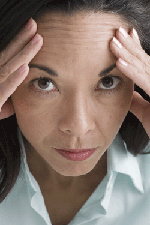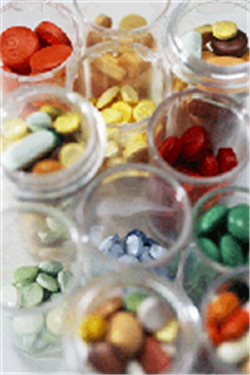 Menopause and mood disorders. Few scientific studies support the idea that menopause contributes to true clinical depression, severe anxiety, or erratic behavior. Most women make the transition into menopause without experiencing a major mood disorder.
Menopause and mood disorders. Few scientific studies support the idea that menopause contributes to true clinical depression, severe anxiety, or erratic behavior. Most women make the transition into menopause without experiencing a major mood disorder.
At the same time, hormone fluctuations, life stresses, sleep troubled by night sweats, and concerns about body image, infertility, and aging can all cause emotional distress that may lead to mood swings or, in more severe cases, depression. Many women report symptoms of depressed mood, stress, anxiety, and a decreased sense of well-being around the time of menopause. This is not surprising, since the winding down of fertility and the physical changes of midlife may lead women to contemplate their mortality and question the purpose and direction of their lives, as well as whether they had enough children. Those who wanted a child but were unable to have one may find menopause an especially sad or troubling period.
In studies, mood changes have been observed in up to 23% of peri- and postmenopausal women. Additionally, symptoms of anxiety—tension, nervousness, panic, and worry—are reported more frequently during perimenopause than before it, regardless of whether symptoms of depression are present or not.
Depression can be both a cause and a result of a sexual problem.
Depression, mood, and sex. The relationship between sexuality and depression or mood state is often complicated. Depression can be both a cause and a result of a sexual problem. For instance, a woman’s loss of desire may contribute to her depression, yet she also may see her desire decline as an effect of depression. Additionally, mood affects emotion, which affects relationship issues, which in turn have implications for sex.
Although low desire is the most frequent sexual side effect of depression or anxiety, other aspects of sexuality can also be affected. In women, orgasm may be more difficult to achieve when depression is present.
As many as half of patients who take SSRIs report some sexual dysfunction.
Sexual side effects of antidepressant drugs. Women with moderate to severe depression or anxiety will often be prescribed the popular antidepressant drugs known as SSRIs (selective serotonin reuptake inhibitors). Although the SSRIs are often effective in improving depression or anxiety, for many women (and men) they carry sexual side effects that include diminished sexual desire, trouble achieving and maintaining arousal, and difficulty achieving orgasm. As many as half of patients who take SSRIs—which include fluoxetine (Prozac), sertraline (Zoloft), paroxetine (Paxil), and Celexa (citalopram), among others —report some sexual dysfunction.
 The good news is that there are alternatives for patients with depression or anxiety whose sex life has taken a hit from SSRI therapy. Several non-SSRI antidepressants, including bupropion (Wellbutrin) and duloxetine (Cymbalta), are less likely to cause sexual dysfunction, and bupropion has even been reported to increase sexual drive and arousal in some women. Additionally, older antidepressant drug classes known as tricyclic antidepressants and monoamine oxidase (MAO) inhibitors are not associated with sexual problems, but they carry other potentially risky side effects. New antidepressants, such as vilazodone (Viibryd), continue to be introduced and need to be monitored for their effect on sexual function.
The good news is that there are alternatives for patients with depression or anxiety whose sex life has taken a hit from SSRI therapy. Several non-SSRI antidepressants, including bupropion (Wellbutrin) and duloxetine (Cymbalta), are less likely to cause sexual dysfunction, and bupropion has even been reported to increase sexual drive and arousal in some women. Additionally, older antidepressant drug classes known as tricyclic antidepressants and monoamine oxidase (MAO) inhibitors are not associated with sexual problems, but they carry other potentially risky side effects. New antidepressants, such as vilazodone (Viibryd), continue to be introduced and need to be monitored for their effect on sexual function.
Another option is to reduce the dose of your SSRI in the hope of eliminating the sexual side effects without losing the treatment benefits for depression or anxiety. This is a delicate balancing act, however, and any changes in antidepressant therapy or dosing should be done only in consultation with your healthcare provider.
| Substance abuse and sex Depression and anxiety can sometimes lead to substance abuse as a way of coping with life changes. What’s more, women are more likely than men to drink alcohol as a way of dealing with mood dips, loss or divorce, or children leaving home. Although the main reasons to avoid use of illegal drugs and excessive alcohol use are the threats they pose to your overall health and relationships, substance abuse also can take a big toll on sexual function. Alcohol and illegal drugs with a depressant effect can dampen sexual response by dulling the nervous system. Abuse of alcohol and other substances can also undermine sexual function in indirect ways by triggering hot flashes, disrupting sleep, and causing fatigue. |